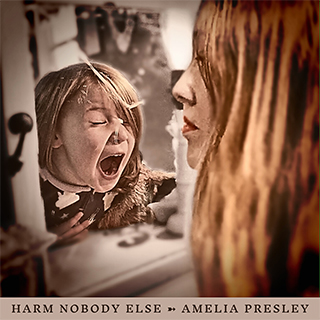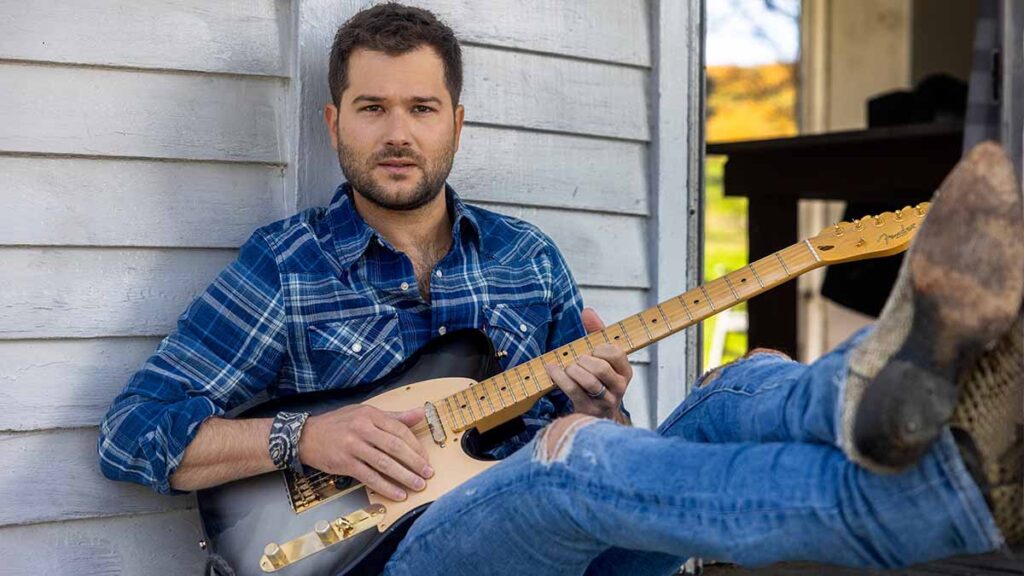Amelia Presley is not your average country music singer. Raised on rough Mississippi dirt, Presley has built herself an empire with her own two hands using grit and determination to achieve her dream of becoming a professional singer.
“There was never a plan B. It was always music and whatever job I was having to do just to keep my head above water,” the singer laughed.
Presley explained she can’t remember a time growing up in which she didn’t sing. “I have always sang. I didn’t grow up and decided that I was going to do it after I grew up. It is something I always knew I was going to do even from a really young age,” Presley said.
In her innocence, she would write songs before she could read or write. Presley explained, “I would just walk around making up my own little song and it is kind of how I always coped with everything growing up.”
Even from a young age, her unique voice failed to go unnoticed by her family. Her raspy tone and cool expression that she takes pride in today was a source of insecurity and disconnect from her family when she first began singing.
“When I was a kid, my stepmother hated my voice and she hated the soulfulness in it. She actually sent me to a voice teacher to ‘fix’ my voice because it was gravely, raspy and soulful and my voice teacher ended up bringing that out more in my vocals and told me that it was right and that it was me,” Presley explained.
With multiple figures telling Presley her voice was a gift, the singer explained it was hard to believe them when she was told otherwise by family members.
“I was so frustrated with it that I went about a year without singing at all. I told myself I couldn’t sing and if anybody asked I would tell them I don’t sing anymore. I eventually came back to it and said this is how I sound,” she said.
With a developed confidence, Presley moved forward in her singing career in her early 20s, leading to impressive appearances on the Grand Ole Opry stage in Nashville, TN, American Idol, the CMA Music Festival and more.
Presley described her comeback to music was done with the help of her son, “I would sing this song, “Catfish Blues” by Jimmy Hendrix and you can’t sing that song without being bluesy. (My son) would try to sing like I was singing and he would make his voice deeper. It was the cutest thing, him trying to emulate that soulfulness in my voice. I took a voice recording and I remember sending it to a friend of mine and I remember her saying, ‘Wow you can really sing’. I think that was a little piece of getting me back into singing again because I was like someone actually liked my real voice.”
Although Presley learned to appreciate her unique tone later on in her life, despite the dismay of her family, Presley explained that at a young age people could hear pain and soul in her voice which she explained came from raw emotion.
From the young age of 3, Presley suffered emotional and physical abuse from her stepmother. For 13 years, Presley bore the blows and explained she would wonder why the abuse would happen. “I am honestly glad that it happened because if people don’t go through it and talk about it then other people are going to suffer and maybe not have the chance to heal and hear anyone else speak about it,” she said.
An image of strength and inspiration, Presley told me that she hopes the song sparks more conversation about abuse in society. “Someone always comes up to me and tells me they can relate or knows somebody who can relate which really speaks to the fact that it is just a common thing. It blows my mind how common it is for someone to have been through some kind of abuse and that we all kind of feel like we have to hide it and feel ashamed,” Presley said.
“Harm Nobody Else” is her story and her source of healing. These years of being a victim, quietly suffering through her youth and teenage years is vocalized for the first time publicly in her new single. Although it was a relief for Presley to get her caged up feelings out in the open, Presley described that she was worried it would bring her back to the place of believing people would pity her and her past.
“I think I was so afraid (of thinking) that people were going to feel sorry for me or they’re going to look at me and think that I am not strong,” Presley explained.
The singer was proved wrong by the positive reactions her fans exemplified regarding the song and the many narratives others told her of their account of abuse.
The song itself was written rather quickly yet contains lyrical verses that untangle the anger and evolved vigor that Presley felt after those long years. The music video that she created is a visual representation of these painful 13 years and stars her daughter who plays herself going through the abuse. The video will be released at the end of this month.
“I have a shed that I have turned out into a studio. It’s where I go to get work done and I came out here and wrote the song. I put it down and that was it. I know that it killed me a little bit to get it down on paper but I didn’t actually connect to it until I came out and told publicly what the song was about,” she commented.
Presley said that her ultimate goal for “Harm Nobody Else” is that she wants to publicize the message that anybody who has gone through abuse doesn’t need to keep their past a secret to protect the person who abused them. “I hope that “Harm Nobody Else” will inspire (victims) to heal and be honest with themselves about what happened to them,” Presley remarked.

Listen to Presley’s inspiring new single, “Harm Nobody Else” here.


